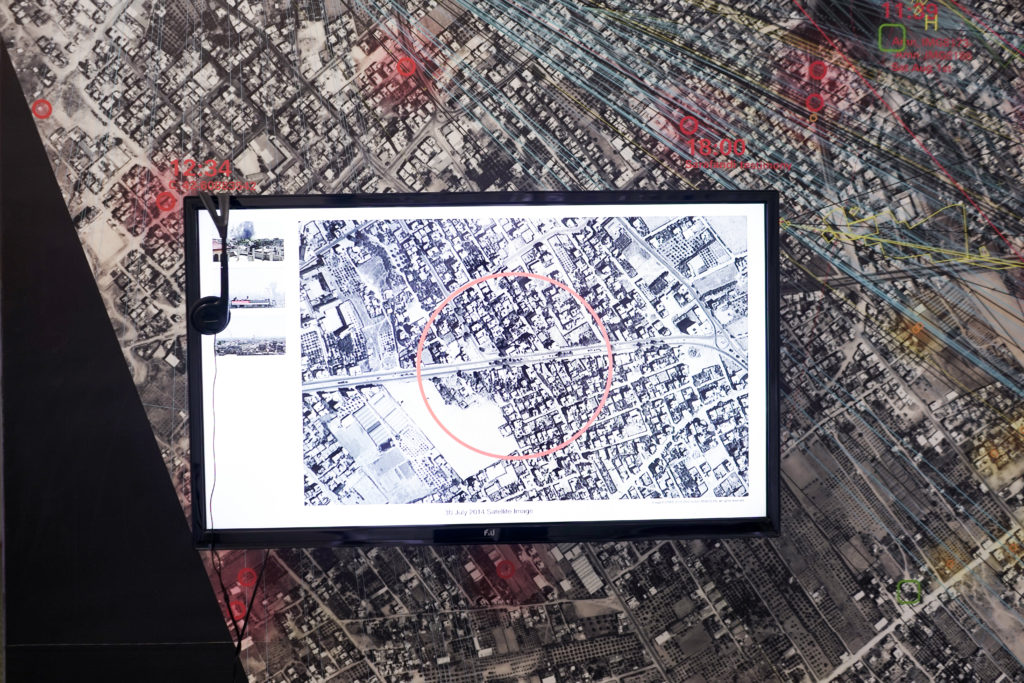
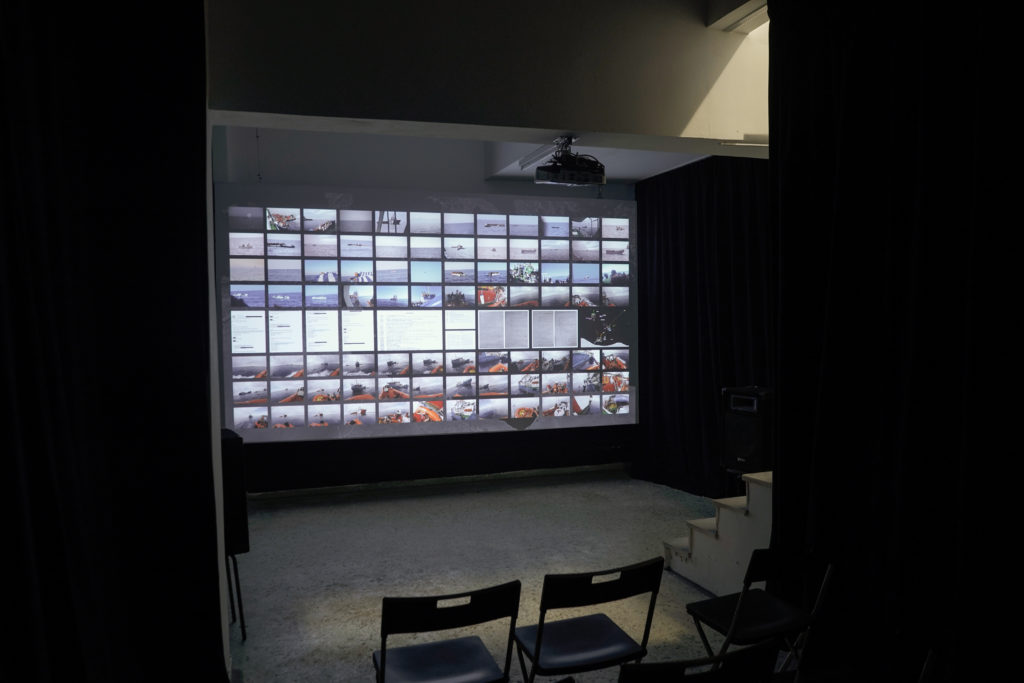
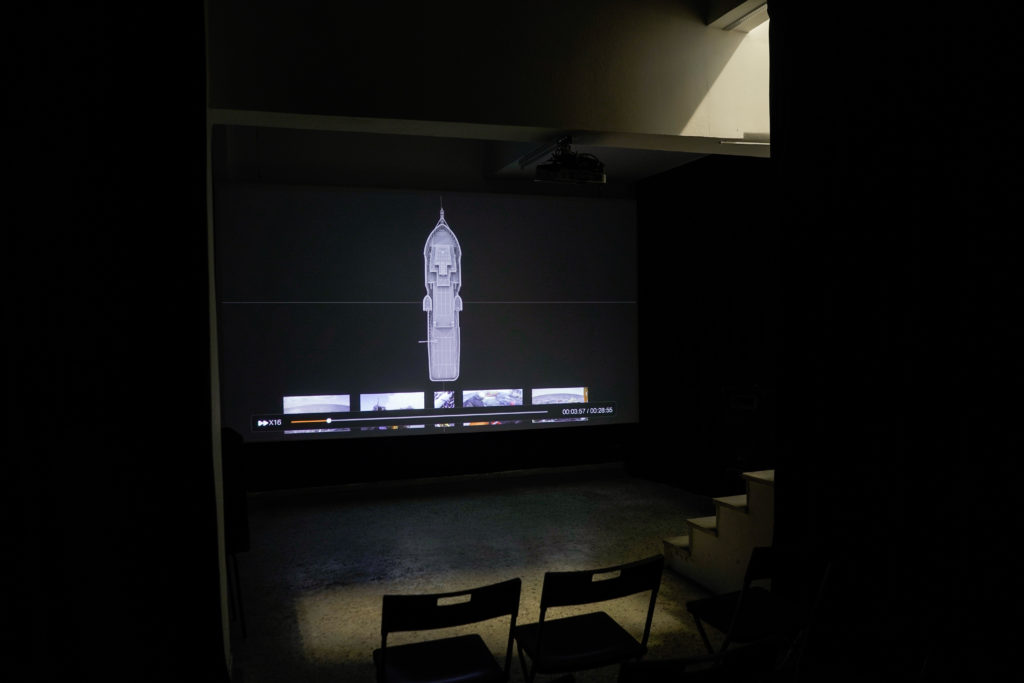
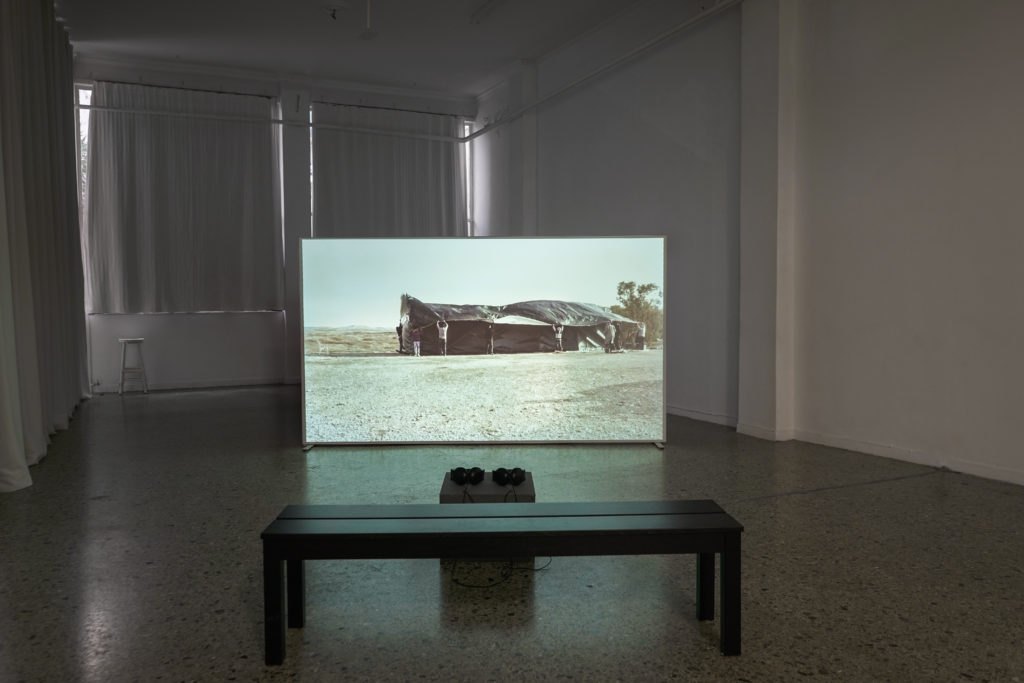
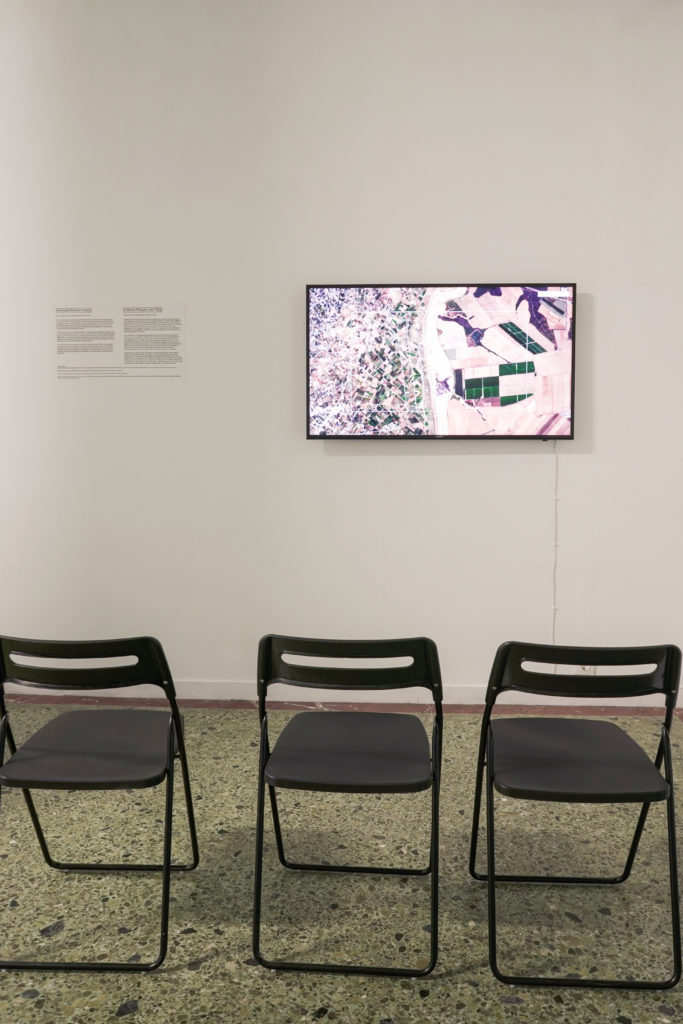
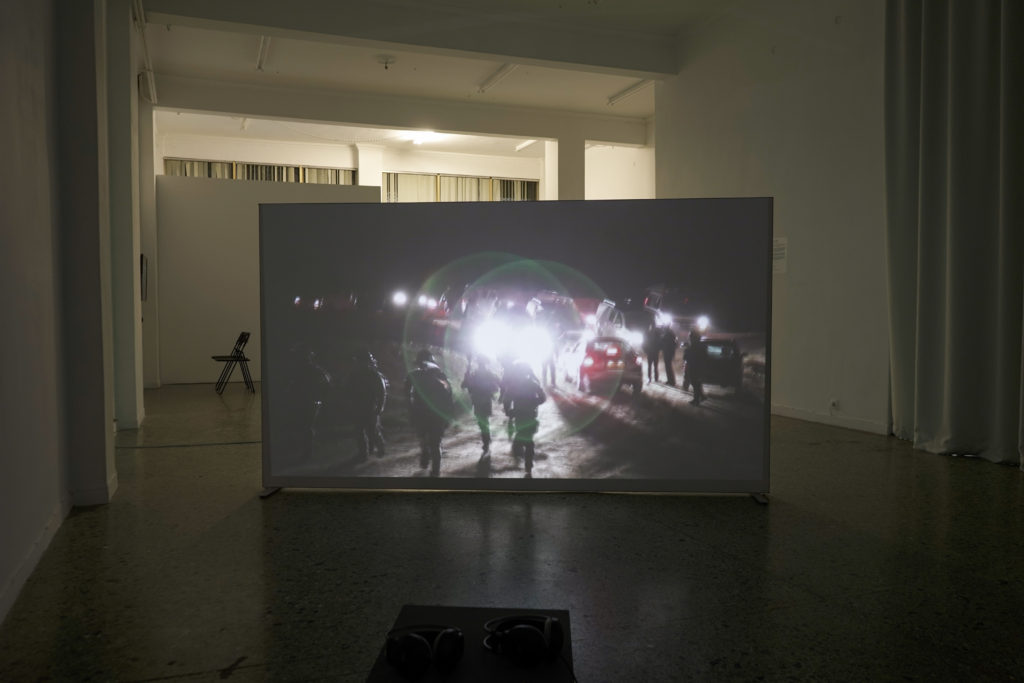
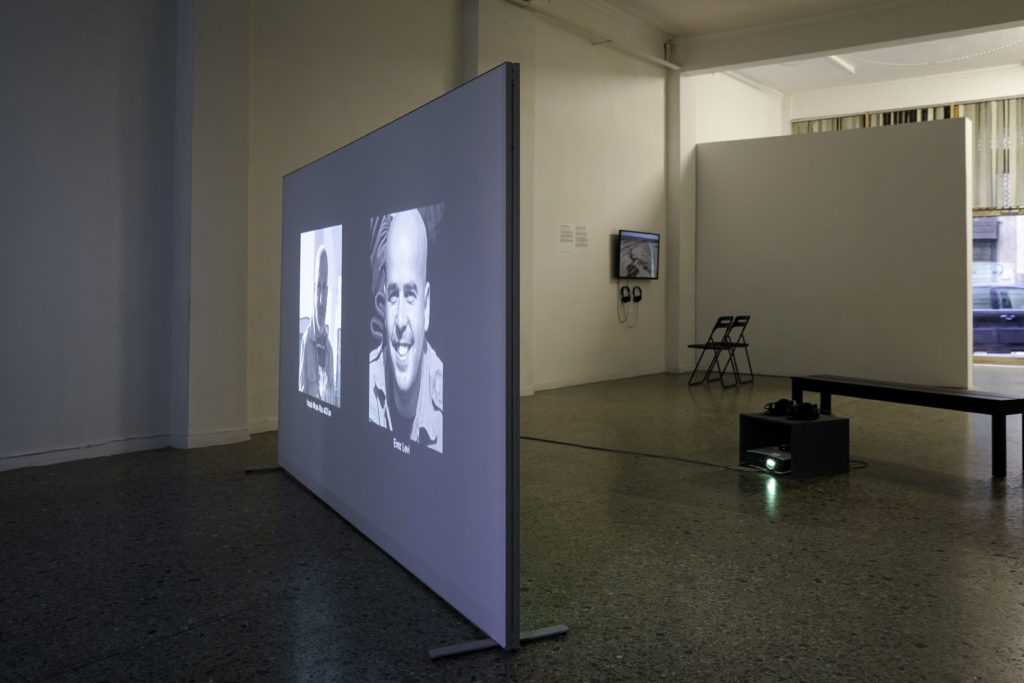
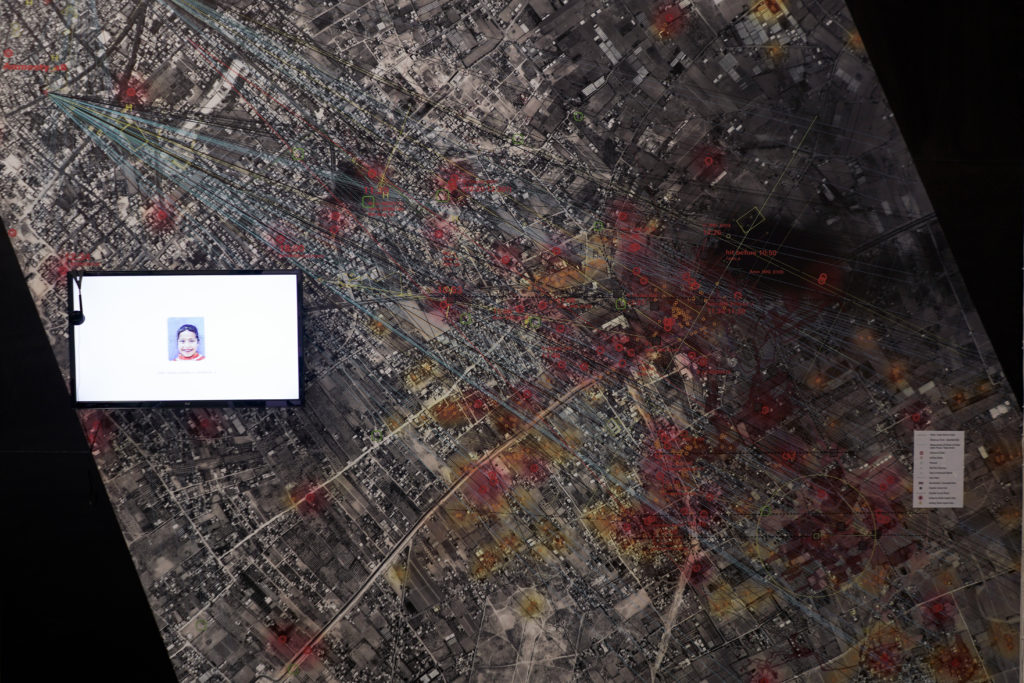
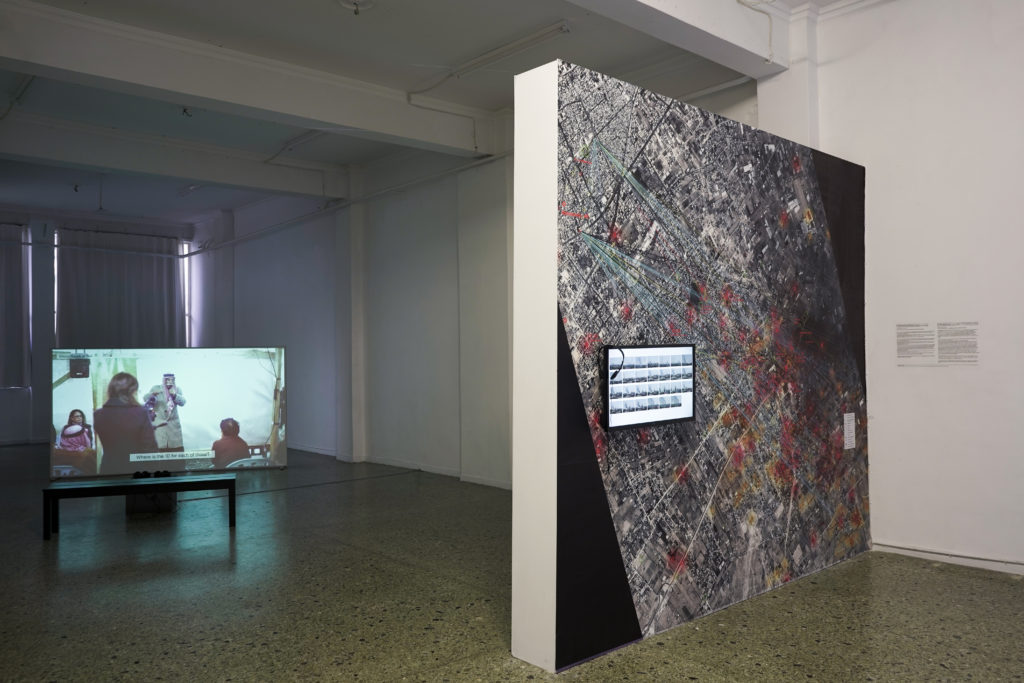
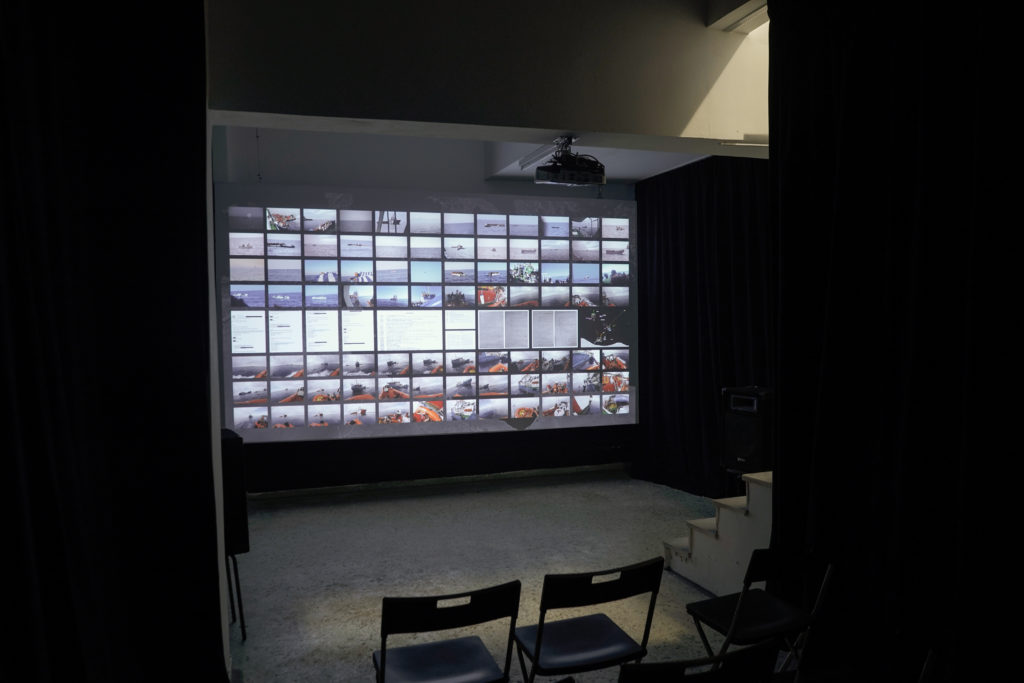










27 September—30 November 2019
Solo show
Turner Prize nominees Forensic Architecture (FA), present their first solo exhibition in Greece, entitled “Violence, Fast and Slow” at State of Concept Athens, curated by iLiana Fokianaki. The exhibition is an overview of the agency’s varied and interdisciplinary practices. Known in Greece for their investigations of the murders of Pavlos Fyssas and Zak/Zackie Kostopoulos, FA will introduce a wide-ranging body of international casework, undertaken since the agency was founded by director Eyal Weizman in 2011. This presentation is focused on a core aspect of Forensic Architecture’s research, which they call “cartographies of violence”.
Informed by Harvard professor Rob Nixon and his book Slow Violence and the Environmentalism of the Poor (2011), the projects presented here examine the slow and fast forms of violence that occur in conflict and war zones, but also in democracies worldwide. Violence is customarily conceived as an event or action that is immediate in time, explosive and erupting into instant visibility. ‘Fast violence’ refers to violence that is literal and immediate, which may be manifested through crackdowns on demonstrations, police brutality, the murder and forced disappearance of politicians or activists, border control, etc. It can also include military operations such as those employed during the War on Terror, occupation of land for military bases, and so on. ‘Slow violence’ is, on the other hand, a violence that occurs gradually and out of sight, a violence of delayed destruction dispersed across time and space, a violence that is not always understood as violence at all. Climate catastrophe and toxic waste are two aspects of such violence, highly relevant in a world that is slowly realising the grave repercussions of humankind’s interference in environmental processes .
On the top floor of our space, FA investigations grounded in the geopolitical specificity of Israel/Palestine will bring forward cases that deal with the role of state in the murder of civilians, the use of herbicidal warfare, and the destruction of indigenous cultural heritage. The projects presented on the lower floor of the institution, undertaken in collaboration with Forensic Oceanography, focus on investigations that track the criminalisation of NGOs undertaking search and rescue operations in the central Mediterranean by Italian and Libyan authorities.
As an institution, we feel it is essential to exhibit this work at a time where intolerance towards migrants and refugees is increasingly evident throughout Europe, corroding a continent that twenty years ago, prided itself as the paradigm of multinationalism and peaceful coexistence. Unfortunately, EU governments since the Lisbon Treaty, have demonstrated an inability -and, indeed, an unwillingness- to address the migrations of displaced persons. The waters of the Mediterranean, and those of Greece and Italy specifically, have recently become the topos of death. Although the refugee crisis has not occupied as much space on the front pages of international media since the height of its coverage in 2015, the influx of people into Europe continues and indeed a resurgence in numbers of refugees into Greece was recorded over the summer of 2019.
‘Violence, Fast and Slow’ is the fifth exhibition in our current program “Department of Justice”, which began in 2018, and is simultaneously the opening exhibition of a new program entitled “Xen(i)os” that looks into the multiple histories, presents, and futures of the migratory condition in Europe and beyond.
Forensic Architecture is a multidisciplinary research agency that uses architectural techniques and technologies to investigate cases of state violence and violations of human rights around the world. The group is led by architect Eyal Weizman, and comprises a team of investigators including architects, scholars, artists, filmmakers, lawyers, and scientists, among others. The group uses advanced architectural and media techniques to investigate armed conflicts and environmental destruction, as well as to cross-reference a variety of evidence sources, such as new media, remote sensing, material analysis, and witness testimony. Forensic Architecture is also an academic and an emergent field of practice developed at the Centre for Research Architecture, at Goldsmiths, University of London.
Forensic Oceanography (FO) is a project, established by Lorenzo Pezzani and Charles Heller, that critically investigates the militarized border regime in the Mediterranean Sea, analysing the spatial and aesthetic conditions that have caused over 16,500 registered deaths at the maritime borders of Europe over the last 20 years. Together with a wide network of NGOs, scientists, journalists, and activist groups, FO has produced, since 2011, several maps, videos (e.g. Liquid Traces), visualisations, human rights reports (e.g. the report on the ‘Left-to-Die Boat’ case) and websites (e.g. www.watchthemed.net) that attempt to document the violence perpetrated against migrants at sea and challenge the regime of visibility imposed by surveillance means on this contested area.
State of Concept is supported by
Outset Contemporary Art Fund (Greece)
“Department of Justice” is
supported by
Foundation For Arts Initiatives
The exhibition is organised with the support of
British Council